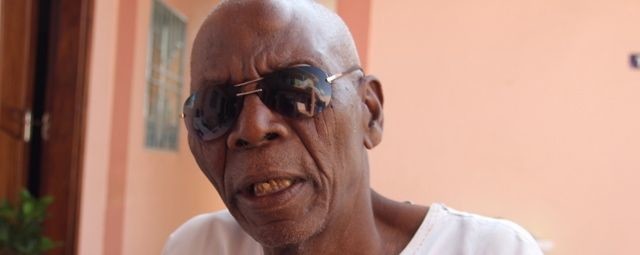South Sudanese elders organizing an inter-regional dialogue initiative among elders say that they will come up with conference resolutions that will be passed to President Salva Kiir for consideration. Several elders from Western Equatoria told Radio Tamazuj they have come to Juba to launch the initiative.
An elder from Western Equatoria State called Raphael Zamoi Zorosi said that the initiative is still just beginning: “We don’t know what will arise in the agenda, we may make it short or long when there is opportunity that will contribute to a mechanism for a meaningful solution.”
“I arrived here yesterday from Yambio together with our governor for a very important issue which is the crisis that started in December. Up to now we are very much worried; therefore we as elders from Western Equatoria have welcomed the initiative from our governor to offer us a lift to also meet our colleagues from the other states who have witness something we never expected,” he said.
The elder was referring to Governor Joseph Bakosoro, who arrived earlier this week in Juba from the WES capital Yambio in the company of several elders, saying he would help launch the inter-regional dialogue, in which representatives of greater Bahr al Ghazal and greater Upper Nile also would take part.
Zamoi pointed out that in spite of being a ‘new-born nation,’ South Sudanese “do not enjoy the fruits of independence,” owing to the conflict.
“Now therefore we have come and are willing to see the other sons and daughters from the other states,” he said.
Referring to the losses of many innocent people during the war, Zamoi stressed, “We will not sit by as elders and allow it to continue, and that is why we came to Juba and our colleagues in government.”
“My message to my brothers and sisters in other states, counties and communities and in South Sudan at large is that we as the elders of this country are very sorry and regret for what has happened of where so many lives have been lost. Therefore we wanted to arrest the situation and stop the war immediately and put the guns down and come to the table to use the weapon of wisdom so that we live in peace,” Zamoi concluded.
Ezra Mina Mbori, another leader, said that he has considered the inter-regional elders’ as a step toward solving the country’s problems. He said that when elders’ views are considered, it would bring a last solution.
“As we are going to sit together as elders, we are going to be frank and if so we will meet the president and advise the president as we are advising the governors and our communities,” Mbori said.
“My message to the communities of the Republic of South Sudan including our government is that they have to contribute in the name of peaceful coexistence and national unity; if you do not put national interest first, there would no coexistence among our people,” Mbori said.
Another elder referred to the impact of the crisis in Western Bahr al Ghazal, in particular the recent tensions between farmers and migrant pastoralists, who sought shelter in the state with their herds. He stressed that the issue had been exaggerated, saying it was not a major problem but only a misunderstanding.
“We found that there is just a misunderstanding – not many lives have been lost. All farmers and the community in the state don’t use the gun, but wisdom of peace and reconciliation,” Bogie said.
As to whether the controvertial issue of federalism would be addressed at the conference, Zamoi said, “I’m sure that it will arise in our discussion. For those who think that federalism is another Kokora, no, I don’t think so, this is not correct… When things are falling apart we come together and see what could be the solution forwards.”
Governor Bakosoro, a proponent of federalism, had said that federalism would not be on the agenda.
Photo: Raphael Zamoi Zorosi (above), Michael Bogie (gallery 1), Ezra Mina Mbori (gallery 2)




